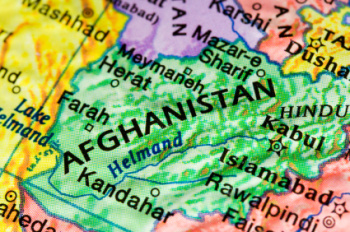There doesn’t appear to have been any actual movement toward releasing 65 Bagram detainees who were cleared by the Afghan government for release quite some time ago, but the US felt the need to issue a new round of condemnations of the planned eventual release.
 The US military command in occupied Afghanistan claimed the releases would violate “agreements” made between the two nations, and said they believe the Afghans “never seriously considered” the evidence against the detainees because of how quickly they were ordered released.
The US military command in occupied Afghanistan claimed the releases would violate “agreements” made between the two nations, and said they believe the Afghans “never seriously considered” the evidence against the detainees because of how quickly they were ordered released.
Afghan officials have repeatedly addressed the issue, saying what the US gave them was mostly non-specific allegations of theoretical “danger” and not actual evidence of real crimes committed, and that the detainees to be released had nothing provided that warranted holding them under Afghan law.
That’s not sat well at all with US officials, for whom the idea of releasing detainees in the absence of evidence is a quaint, out-dated concept. The Pentagon has repeatedly insisted that the Afghan Review Board, the first group to order the release, was never meant to have the authority to release anybody, and was supposed to choose between either prosecuting people, if they thought they could get a conviction, or open-ended detention if they didn’t have enough evidence for a prosecution. Afghan judges and much of the government have since weighed in, similarly saying the detainees must be let go.


